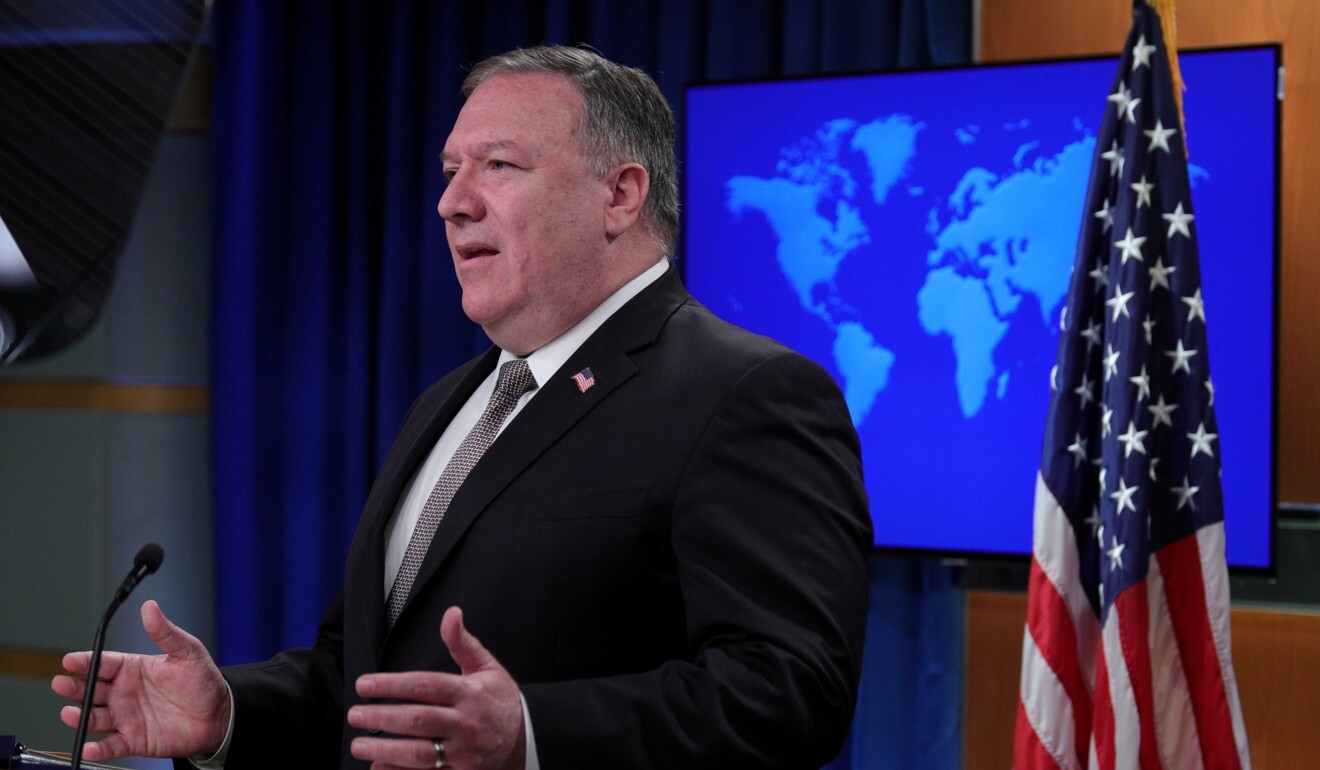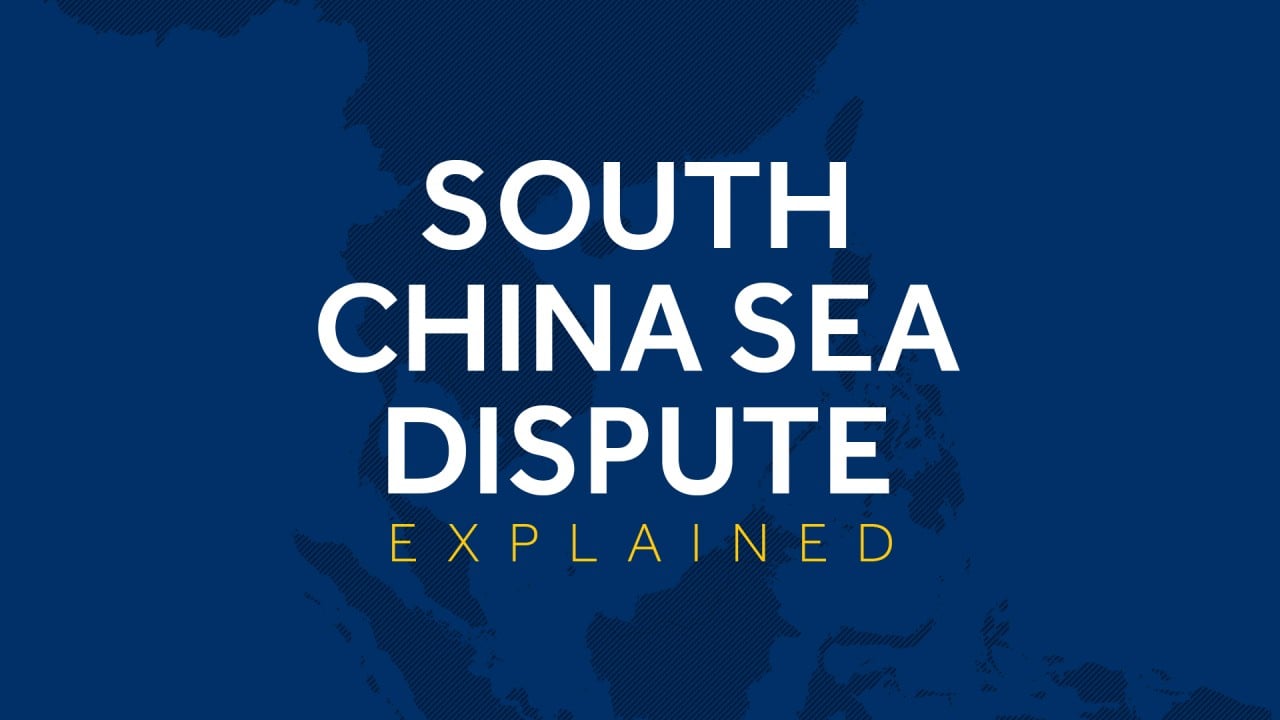
Will South China Sea’s rival claimants be emboldened by US policy shift?
- Washington’s tougher line on the contested waterway gives China’s neighbours some leverage in negotiations, observer says
- But they are expected to carefully balance relations between the two superpowers to avoid getting caught in the middle
While avoiding being seen to be taking sides, some of China’s neighbours said in a statement after the US remarks that Beijing should follow international law in relation to the South China Sea.
Tensions over the resource-rich region have been rising, with both Southeast Asian nations and the United States saying China was to blame because of its infrastructure and military build-up there. The US, which is not a claimant state, has meanwhile stepped up its military presence, sending warships and aircraft to the disputed waters to keep tabs on China’s activities.

02:32
Washington’s hardened position on Beijing’s claims in South China Sea heightens US-China tensions
Elizabeth Economy, director of Asia studies at the Council on Foreign Relations in the US, said Pompeo’s statement signalled that Washington would reinforce its support of the tribunal ruling and would “likely encourage other countries to more actively support the ruling as well”.
By rejecting China’s maritime claims, the US was serving the “interests of those who want the [United Nations Convention on the Law of the Sea] to be the basis for determining maritime rights in the South China Sea”, according to retired US Navy Rear Admiral Michael McDevitt.
“What Washington wants is for [China] to just follow accepted international law, which includes UNCLOS,” said McDevitt, a senior fellow with CNA Strategic Studies.
Xi’s call to Singapore: a subtle ‘reminder’ about the South China Sea?
That UN convention was the basis for the case filed by the Philippines with the Permanent Court of Arbitration in The Hague in 2012.
Four years on, Vietnam is mulling legal action to assert its maritime claim. Its deputy foreign minister Le Hoai Trung said Hanoi would prefer to negotiate, but other measures such as mediation, arbitration and litigation would not be ruled out. In May, Hanoi nominated four arbitrators and four conciliators, a sign it could soon file a complaint.
After the remarks from Pompeo and Stilwell, Vietnam’s foreign ministry released a statement of its own. It did not name the US, but said “respecting the legal order at the sea and implementing [the UN convention] in full and with good faith” was critical.
The under-the-radar South China Sea projects Beijing uses to cement its claims
Manila-based academic Richard Heydarian said the US statement had “major operational implications”, especially for US allies like the Philippines, as it offered clarification of America’s commitment in the South China Sea.
“In the event that China engages in a provocative or aggressive unilateral action against Filipino vessels or troops in the area, then you can make the legal argument that the Pentagon has to intervene on the Philippines’ behalf,” he said.
Heydarian said Vietnam could launch a legal challenge against China’s claim after Hanoi’s new leadership is confirmed next year. “Vietnam is ready for it. It’s just a matter of the political decision by the Vietnamese leadership,” he said.

Jay Batongbacal, director of the Institute for Maritime Affairs and Law of the Sea at the University of the Philippines, also said the tougher US stance “gives the Asean states some leverage in negotiations because they know that their positions have wider international support than China’s”.
“The declaration that Beijing’s excessive claims and activities to assert them are unlawful establishes a justification for cooperation and policy coordination between the US and concerned Southeast Asian countries against China’s activities,” Batongbacal said.
He added it was “not a basis for military action against China”. He said if there were an agreement between the US and Southeast Asian countries on when and where China could be considered to be acting unlawfully it would set the stage for negotiations or for claimant states to take judicial action.
But McDevitt from CNA expected Association of Southeast Asian Nations members to continue to carefully balance their relations between China and the US because they would not want to be forced to choose a side and get caught up in the dispute.

03:23
The South China Sea dispute explained
According to Thomas Daniel, senior analyst at the Institute of Strategic and International Studies Malaysia, it was unlikely that claimant states would take legal action against China.
“Asean and its members will be very cautious with dealings with China and how they officially respond to the US statement,” he said. “The reality is that China has a huge amount of influence in most member states. It is a very important economic trading partner. It is a major power that is very much present in our region, a geographic reality that is not going to go away.”
The US is taking on Beijing over the South China Sea, but Asean remains cautious
In the first quarter of this year, Asean overtook the European Union and the US to become China’s biggest trading partner amid the protracted US-China trade war and the coronavirus pandemic.
Daniel said Asean should take a more “minilateral” approach in coordination with the claimant states to address their South China Sea disputes with China.
“Vietnam, the Philippines, Brunei and Malaysia should really be doing more with each other because the South China Sea dispute is not just a dispute with China – all of these states have disputes with each other,” he said. “They should minimise the issues between them and then put more emphasis on common positions when it comes to negotiating with China.”

